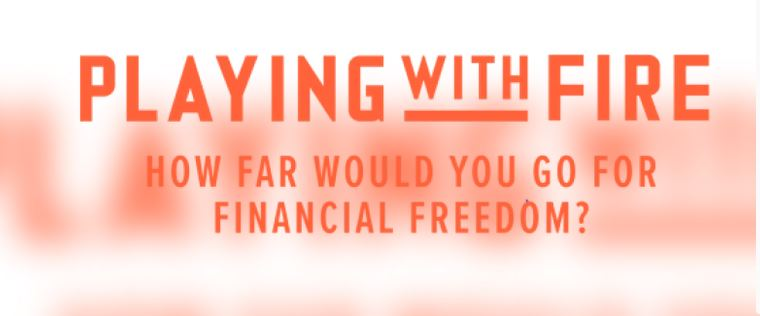
How to choose a direct mutual fund?
1. Start with the basics - what are your goals, time horizon, and risk appetite? Your dream vacation fund can take more risk than your kids education fund, for example.
1. Start with the basics - what are your goals, time horizon, and risk appetite? Your dream vacation fund can take more risk than your kids education fund, for example.
2. Once you know that, determine the asset allocation between equity & debt.
For equity, figure out how much you'd like to invest in large, mid, small cap and understand the risk-reward profile for each.
For equity, figure out how much you'd like to invest in large, mid, small cap and understand the risk-reward profile for each.
3. Personally, I would like to go with funds focused on LC, MC, SC than a flexi fund, but that's my preference.
When shortlisting funds, check for the following: how long fund has been active, 5/10 year returns, expense ratio, turnover, frequency of change in fund manager...cont
When shortlisting funds, check for the following: how long fund has been active, 5/10 year returns, expense ratio, turnover, frequency of change in fund manager...cont
4. ..., portfolio, concentration of top 10/20 stocks, AUM size.
I prefer funds that have a long track record (even if periods of under performance) and smaller expense ratio.
I prefer funds that have a long track record (even if periods of under performance) and smaller expense ratio.
5. I have split my large, medium, small cap funds across different AMC because I want to minimize the impact of something like the FT saga happening at a given AMC. Lower chances of this happening in multiple AMCs simultaneously.
6. Debt funds - For Emergency funds, mix of a liquid / overnight debt fund + FD is my suggestion.
For goals less than 3 years, I suggest Ultra Short Term Funds.
Please learn about credit, duration / interest rate risk before investing in Debt Funds!!
For goals less than 3 years, I suggest Ultra Short Term Funds.
Please learn about credit, duration / interest rate risk before investing in Debt Funds!!
7. Do some checks on the proportion of higher-risk (below A grade) bonds that a fund manager can use to boost returns.
Also figure out how much AT1 bonds is in the portfolio. It's a long topic, but if you don't understand the risks of AT1 bonds, learn before investing!!
Also figure out how much AT1 bonds is in the portfolio. It's a long topic, but if you don't understand the risks of AT1 bonds, learn before investing!!
8. Finally research whether the fund has had to segregate / side pocket the portfolio in the past - this is applicable only for hybrid and debt funds. If yes, when was last time? How often has that happened? What portion of the portfolio was impacted?
9. Once you've done all this, pick your choices and stick with them for at least 3-4 years, before changing, if there is a real need to.
Do not blindly chase last year's best performing fund - understand the reversion to mean principle!
Do not blindly chase last year's best performing fund - understand the reversion to mean principle!
10. Discipline to maintain a systematic investment based on judicious risk assessment will likely help achieve your goals better than simply churning through mutual funds in the elusive hope to invest in this year's best performing fund.
Hi @dmuthuk, @invest_mutual, @contliving, @contwealthco, @contrarianEPS, @poojalapasia, @Turtlemoneycirc: please go through and give your opinion on above thread 👆. Thanks in advance.
• • •
Missing some Tweet in this thread? You can try to
force a refresh



